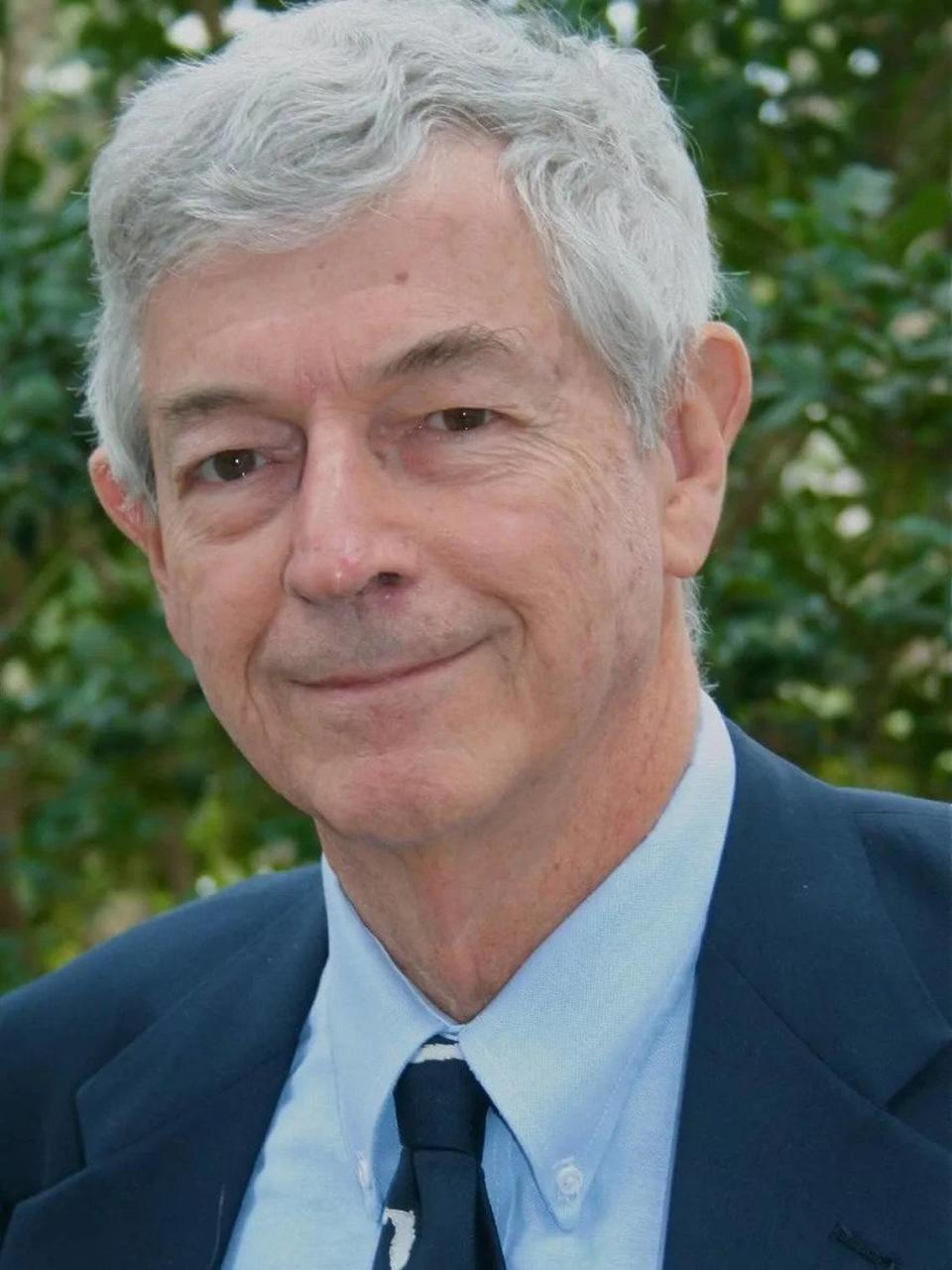A decent man, a failed presidency — and a stellar career in public service | Opinion
- Oops!Something went wrong.Please try again later.
- Oops!Something went wrong.Please try again later.
- Oops!Something went wrong.Please try again later.
Former President Jimmy Carter, who has been in hospice care since February, made a rare public appearance this week when he attended memorial services for his wife of 77 years, former first lady Rosalynn Carter.
Looking frail, Carter, who turned 99 on Oct. 1, may or may not reach the century mark. However, the Carters’ moment in the spotlight this week stirred memories of his time in the White House — four years marked by a fleeting but important triumph and too many abject failures.
The signature triumph, the 1978 Camp David Accords that led to an enduring peace between Israel and Egypt. Almost 50 years later, the pact is playing a helpful role in providing relief for Gaza residents in Israel’s war against Hamas.
Trucks bringing supplies have poured in from an entry point along Gaza’s border with Egypt, and some of Hamas’ hostages have been released there.
That the situation along Israel’s western boundary has remained peaceful — even during the Muslim Brotherhood’s brief reign in Egypt — has been a plus for stability in that part of the Middle East.
Unfortunately, the same cannot be said for the portions of the region where the pernicious influence of Iran’s theocratic rulers is promoting the destruction of Israel as a Jewish state “from the river to the sea.”
Iran’s proxies, including the Houthi rebels in Yemen and Hezbollah in Lebanon and Syria, have attacked U.S. forces in the region and even hijacked cargo ships traveling in international waters.
Jimmy Carter was president when the Iranian revolution deposed the shah and when students and others who supported the new regime subsequently took hostages at the U.S. Embassy in Tehran.
The Carter administration’s 1980 military effort to free the hostages ended in disaster — a failure that stood in contrast to Israel’s successful 1979 raid to rescue Israeli hostages held in Entebbe, Uganda.
To make matters worse, in 1979, Iran and OPEC slashed oil production, causing a spike in prices and long lines at the gas pumps. This added to the political baggage the Carter administration endured as a result of runaway inflation (18.1%), high interest rates (mortgages at 16.4%), and unemployment (7.8% in 1980).
During the presidential debate between Ronald Reagan and Carter on Oct. 28, 1980, Reagan famously asked voters to ponder this question: “Are you better off now than you were four years ago?”
The answer from voters was a resounding No! Carter carried five states and the District of Columbia, garnering only 49 electoral votes vs. Reagan’s 489. He graciously conceded defeat rather than attempting to stage a coup to prevent the peaceful transition of power.
Oddly, this humbling defeat was a prelude to the most successful portion of Jimmy Carter’s public life. With his wife, Rosalynn, at his side, he worked to advance the cause of peace and election integrity throughout the world. For his efforts, he won the Nobel Peace Prize in 2002.
Much of his work in this field was undertaken through the Carter Center, which is adjacent to the Jimmy Carter Library and Museum in Atlanta. The latter — operated by U.S. National Archives and Records Administration — has not reported discovering any purloined or misplaced documents in Carter’s possession.
In addition to his public role, in his later years Carter often rolled up his sleeves and contributed his physical labor to the projects of one of his favorite non-profit organizations, Habitat for Humanity.
The organization, based in Americus, Georgia, not far from the Carters’ home in Plains, uses volunteers to build homes for deserving people who contribute their own sweat equity by taking part in the construction.
When Carter’s time on Earth comes to an end, chances are that he will be remembered less as a failed president than as a decent man whose post-White House years set an admirable example of public service beyond the unforgiving realm of politics.


